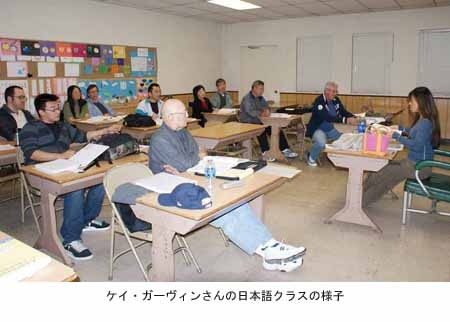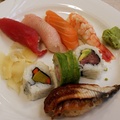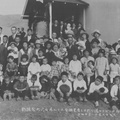>> Part 1
When I cover the Japanese community in Los Angeles, I notice that many third-generation Japanese are active in the Japanese community. This time, too, all the Japanese students in the Japanese language classes at the Japanese Community Center in Venice were third-generation Japanese. Does this mean that in America, which was founded 230 years ago, awareness of Japanese people fades once they reach the fourth generation or higher?
Of course, there are many generations of Sansei, from children to the elderly, but those in their 30s and 50s who are active in the Japanese community have parents (Nisei) who were in the internment camp generation. This generation suffered hardships in America during and after the war simply because they had Japanese blood. Some of them did not want their children to learn Japanese. On the other hand, some were inspired by the civil rights movement for minorities that took place in America in the 1950s and 1960s and found pride in their Japanese roots.
(Regarding the point that "many of those active in the Japanese community are third-generation Japanese," Nishimura of Discover Nikkei.org pointed out that "rather than the generation, the era in which one grew up may also be related to their interest in Japan." The two historical facts of the internment camps and the civil rights movement will leave an impact that only those who experienced those times can understand. I would also add that the area in which one grew up may also be related to this.)
In a survey conducted at a Japanese language class in Venice, half of the students attended Japanese language school as children, and the other half did not. Considering that their parents are second-generation Japanese, even half should be considered a large number. In fact, it seems that going to school on Saturdays while other children are playing is very hard for children, and many children quit halfway through. "When they reach about 20 years old, they complain to their parents, saying, 'Why didn't you let me continue back then?'" says Kay Garvin, a teacher at the Japanese language class. They probably made their children quit because they didn't like it, but regretting it as an adult, thinking, "I wish I had studied a little more..." is a common story, not just about Japanese.
So why do Japanese-Americans start learning Japanese as adults? Unlike when they were children, this time they start attending classes of their own accord.
According to the survey responses, some people went for cultural reasons, saying "I want to stimulate my mind" or "I want to study," while others cited practical reasons, saying "I want to learn more about Japanese culture" or "It will be useful when I travel to Japan." The most common answer was "I want to talk to my Japanese relatives." One man had worked in a white society until then and had never even thought about his Japanese roots. However, after the death of his parents, he became very conscious of "Japan" and began studying Japanese. One woman also started attending classes, saying, "I think it's important for me to know Japanese, since I'm of Japanese descent."
Kei teaches slowly, focusing on Japanese grammar and vocabulary. His main job is a fitness trainer, and his respected father was a high school physics teacher, so even from the outside, he is good at teaching, but he often deviates from the textbooks, saying, "It's really hard for adults to start something new." He feels that the Japan taught in the textbooks is a little outdated, so whenever he thinks of something new, he introduces current information and customs in Japan. "Everyone is surprised even by the smallest things." He encourages his students to travel to Japan, and asks them to actually send postcards from Japan. "Because to send a postcard, you have to go to the post office and buy a stamp." It is Kei's "teacher spirit" to want students to experience everyday Japan, not just tourist spots.
Although they are all called Japanese Americans, the degree to which they are conscious of their ethnicity varies greatly from person to person. The third generation Japanese I met in my Japanese language class dance the Bon Odori dance during Obon, go to Taiko group concerts, and eat Ozoni on New Year's Day when they participate in the prefectural association. They have a very high level of Japanese identity, and may be in the minority among Japanese Americans in America. What does it mean for them to learn Japanese? It is only natural that they would use the language as a communication tool to talk to their relatives in Japan. But more than that, learning Japanese is a way of practicing and passing on Japanese culture, just like the Bon Odori dance.
The more postcards Kay receives, the more Japanese culture spreads in Venice.
Kay Garvin's Japanese class is every Friday from 7pm. For more information, please call 310-822-8885.
© 2009 Yumiko Hashimoto











